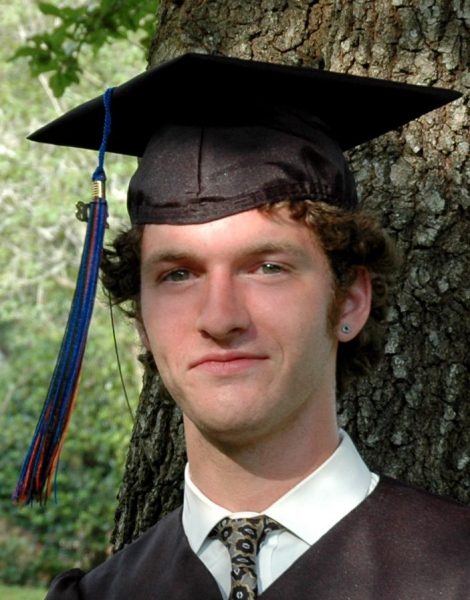I know, I know. This is a weird title, but it’s because these two recycled posts are so short, and I already skipped posting on Labor Day, so I didn’t want you guys to feel short-changed!
We’ve been having a great time chilling with family in Norway here up in the mountains near Geilo. We’ve also been working hard, mowing the roof of the cabin and painting the outside as well as washing all the windows. Today, I’m going to finish the exterior of the windows, clean the fireplace and paint the two small decks. Then I’m going to take a long hike with Rune because I’ve gained 5 to 7 pounds lately, and it interferes with my work. Let me explain. I can always tell when I need to go on a mini-diet when my computer trackpad starts acting crazy. It took me a while to figure it out, but my small lap pad of fat drapes over the edge of the computer and dances across the trackpad as I type. I’ll be damed if I’m going to let my lap pad type faster than me. If I don’t rein in my calories and start exercising more, it’s going to be able to crank out an entire book, “How Elisa Medhus Gave me Life.”
Back to the roof. Yes, we have to mow it because it’s made of sod just like in the olden days. A relative took a video of Rune mowing it with a drone he uses for marketing. Check it out on my personal Facebook page.
One more story about the cabin. The neighbor’s sheep has made it a habit of communing on our porch together and crapping all over it. It was so bad that we had to buy a pressure washer to clean it off. I was telling my sister, Laura, about this, and she was horrified. “How can that be? Aren’t there trespassing laws there?” ‘No, not really. It’s not like in the States,’ I replied. She went on and on about how we should call the police or other authorities and how we shouldn’t let this stand. After about 5 minutes, I realized that she was more upset than I was about it, and I asked her, ‘Why are you so incensed?’ Well, apparently, the entire time she thought I said sheik instead of sheep, so she thought these Arabian sheiks were squatting (as in taking over our porch) and squatting (as in taking a crap on it.) The images in my head were priceless, and I couldn’t stop belly laughing for several minutes. Anyway, on to the post. Enjoy, guys! And thanks for refraining from emailing, private messaging and directing comments to me. I’m on a major data restriction diet because the Internet is very expensive here.
Me: Why are adult children estranging themselves from their parents in record numbers.
Jamie: Adult children. What does that mean?
Me: Children who are already adults. Progeny. They’re not talking to their parents anymore; they don’t have anything to do with them, sort of like excommunicating themselves from their parents, you know?
Jamie: Oh, okay. I get it; I get it. I don’t know why, but I get a funny magnet image in my head.
Me: Oh, no!
Jamie (laughing, then with sarcasm): Wonder where that came from! (pause) He’s just looking at the United States.
(Pause)
Jamie (to Erik): I have NO idea what you just said.
We both giggle.
Jamie (to Erik): You got all technical on me. Take it down all slow and simple.
(Long pause)
Jamie (to Erik): Okay. That was very slow and simple. He said, “Something has to break before it gets fixed.”
Erik: Our culture is learning about the care of elderly and death and dying. It has never been secure in our culture for a child to be responsible and care for the elderly or the parent as they become older. It’s never been a requirement in our culture. It’s been a requirement in other cultures.
Me: Yes.
Erik: Fuck that. It hasn’t been a requirement; it’s been a compassionate gesture in other cultures. It’s just not in ours. It really has to break apart and break down before the children realize, “That is not what I want.”
Me: Mmm.
Erik: The grandchildren. We’re looking at three levels. The grandchildren wake up and say, “I don’t want that, no fucking way!” So, they change the movement of our culture into accepting death and dying as a compassionate gesture for their parents.
Me: Interesting. I completely agree. We so need to redefine death as a transformation from one dimension to the next rather than an ominous end. Maybe this next generation will do that.
Erik: Yes.
*************
Me: One of the blog members has questions about karma: “I have two understandings about karma, and I want to see how correct they are and how they fit together. I’ve met psychics who can look at me … and I’ve heard of masters being able to cleanse karma…this makes me see karma as a cloudy dark substance that’s in the energy field. But I also gather that karma is only our grasping of an illusory reality—not being willing to just let things “be.” So, when something makes us upset, angry, etc., that’s basically our fighting within ourselves because the outer reality only reflects back what we put out. So, it’s really about thinking that’s the focus. Your karma’s ignorant and to be free of karma is to understand, accept, forgive and love. Are both true? Is the detachable karma in our energy fields the physical manifestation of our thoughts and emotions, uh, what is karma, basically? Phew!
Jamie laughs.
Erik: First of all, remember karma is a manmade word.
Me: Exactly. I remember that well. You said that a long time ago.
Erik: Karma is individually designed by you, yourself—it’s not given to you or pushed upon you by some other greater source saying that if you misbehave in the next life, you will have to do this. It is your choice saying that, “I did this action in this life. I would like to counteract it or balance it or experience a different perspective in this life.” There’s no good or bad to karma. It’s just a definition of your understanding to take those person’s words—what you take out is what you put back. But it’s all done by inner design, inner choice. It’s not like a greater religious cause or pushed upon you somehow.
Me: Okay.
Erik: Oh, and by the way, there are many, many, many, many, many, many, many, many, many, many, many, many—
Jamie (sighing): Go ahead. Say that a few more times.
Erik: — people on Earth that don’t have karma whatsoever, because they’ve learned to accept their life and their moment without using the definition of punishment. “If I do something good, I get rewarded.” “If I do something bad, I get punished.”
Me: So, Erik, what he’s saying about fighting within ourselves—that’s part of what karma is as a human construct. To be free from karma is to understand, accept, forgive and love. That makes more sense, right?
Erik: Yes.



